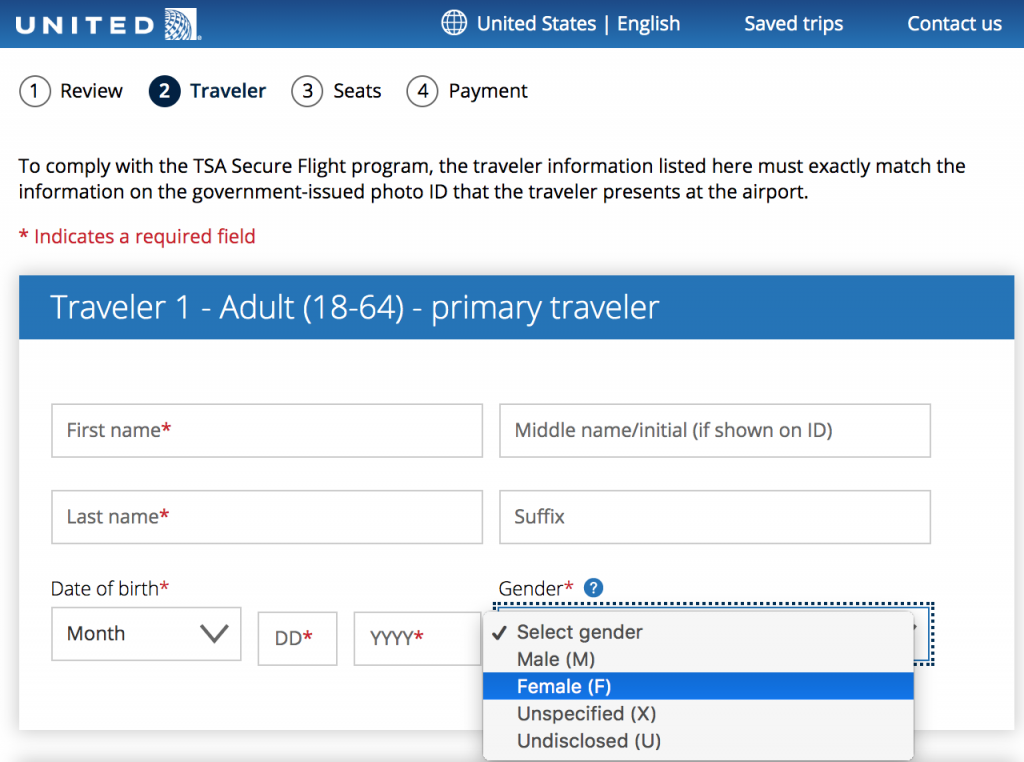In February 2019, the International Air Transport Association released new guidelines for the acceptance of non-binary passenger ID, and on March 22, 2019, United Airlines became the very first airline to implement these. Eleven countries issue passports with gender-neutral or third-gender markers, and eleven states in the US plus DC issue non-binary driver’s licenses.

The basic training for this change is simple: airline employees can now enter X or U gender markers in their system when they see them on passenger ID. But understanding non-binary passengers, and providing them respectful, personal service is more complicated.
At HospitableMe, we’ve been training hospitality professionals about non-binary people for more than two years. Like other segments of the LGBTQ+ community, you can’t provide personalized authentic service to us if you don’t understand who we are, and feel comfortable engaging with us. Here are some basic facts and best practices from our trainings that are key to respectfully serving non-binary travelers
Non-binary people have a physical sex and/or gender identity that don’t fit the binary of male or female. Some identify as genderqueer, third-gender, gender-nonconforming or Intersex — there are subtle differences, but non-binary is the most inclusive designation. Many countries and cultures around the world have or had a tradition of third-gender people that dates back thousands of years — which explains why countries like Pakistan are among those that offer non-binary passports, even though they don’t tolerate a modern understanding of gender diversity. One in 2,000 babies are born with indeterminate genitalia — sex organs that did not differentiate sufficiently during gestation to be labeled male or female. That’s about the same frequency as redheads — not common, but not especially rare either. And that’s just one of the known ways people can be born non-binary.
Younger generations are much more cognizant and comfortable with gender diversity. According to a J. Walter Thompson survey, 54% of Millennials and GenZ know someone who uses a pronoun other than he or she. And 52% of them identify as something other than 100% straight. While we used to think of lesbian and gay travelers as a small niche, the majority of your future customers understand, respect and even celebrate gender diversity and sexual fluidity, and they expect the people they do business with to understand and respect as well.
Like all travelers and guests, non-binary people deserve to be treated without bias or attitude. Hospitality professionals need to understand their ID, their use of personal pronouns other than he or she, and the enormous amount of stigma and disrespect they encounter daily. Those whose gender expression doesn’t conform to male or female face extraordinary difficulty in using public bathrooms, requiring sensitive travel providers to provide gender-neutral or single-occupancy bathrooms for their use. If you’re interested in learning more about providing authentic, personalized service to LGBTQ+ travelers, drop me a line.
Billy Kolber is the Founder of HospitableMe, providing LGBTQ+ Strategy, Marketing, Education and Training to Tourism and Hospitality businesses.

